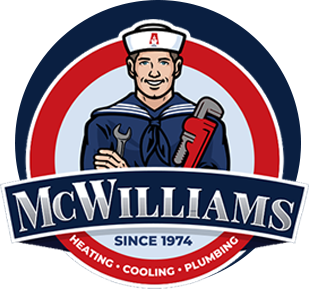When most people think of air conditioning, they think of the typical split system unit that sits both inside and outside of your Livingston home or business. This type of air conditioner works when the outdoor condenser gets warm and the evaporator coil inside of the furnace gets cold. The cool air is then distributed throughout your home or business in Livingston to keep you comfortable during the summer. This type of HVAC system requires you to have separate pieces of equipment for heating and cooling purposes.
When you hear the term heat pump, you may assume that its only function is heating. However, this type of equipment provides both heating and cooling capabilities. During the winter, its outdoor condenser gets cold and the evaporator inside of the air handler gets warm. This is what keeps your home or business warm. When summer comes, the heat pump reverses this process and provides cool air. Heat pumps are an ideal solution for climates with average winter temperatures above 25 degrees. People in colder climates can still purchase them, but they need a secondary source of heating as well.
Choosing the Right Air Conditioner for Your Home or Business
McWilliams & Son Heating and Air Conditioning is a professional heating and cooling contractor that serves the areas surrounding Lufkin and Nacogdoches. If you are thinking about purchasing a new cooling system, an installation technician from our company would be happy to help you with the decision process. We understand that purchasing a new air conditioner can challenge anyone’s budget. While you do need to make an upfront investment, we encourage you to think about how much money you can save with a more energy efficient system. Previous customers have told us that having an energy efficient cooling system installed has saved them up to 40 percent in utility costs over the entire lifespan of the equipment.
Should Your Repair Your Cooling System or Install a New One?
If your air conditioning system still works, making the decision to replace it can be a tough choice. Eventually, you have to decide if you want to continue to put money towards repairs or purchase a new unit altogether. We typically recommend replacing cooling systems that are more than 10 to 12 years old. Units that were manufactured prior to this time may be only half as energy efficient as a newer unit. This is due to the fact that there were no minimum efficiency standards in place yet.
You may also want to look at your energy bills to see if you can detect a pattern of increased costs. You should not be paying a lot more money than you were to cool your home at this time last year. A noisy system and one that provides sporadic cooling is also a good candidate for replacement. When you walk through your home, there should not be a noticeable temperature difference from one room to the next. If you do notice this, you could eliminate this problem with any type of new cooling system.
Energy Efficiency Ratings for Air Conditioners
Whether you purchase a heat pump or a traditional split system, the energy efficiency rating is calculated in the same manner. This rating is known as the Seasonal Energy Efficiency Ratio (SEER). The Environmental Protection Agency (EPA) passed legislation a dozen years ago that required all new cooling units to have a minimum SEER rating of 13. At our company, we sell units with SEER ratings up to the low 20s.
The SEER rating for every air conditioning unit is determined by dividing its cooling output by the total energy consumption of a commercial or residential dwelling. The air output is measured in British Thermal Units (BTU), while total energy consumption is measured in watt-hours. Ratings are not assigned by either the manufacturer or the seller of the cooling equipment. This ensures that there is no conflict of interest and that the customer is receiving impartial information. When you know the SEER of a cooling unit, you can determine your approximate cost for an entire summer.

